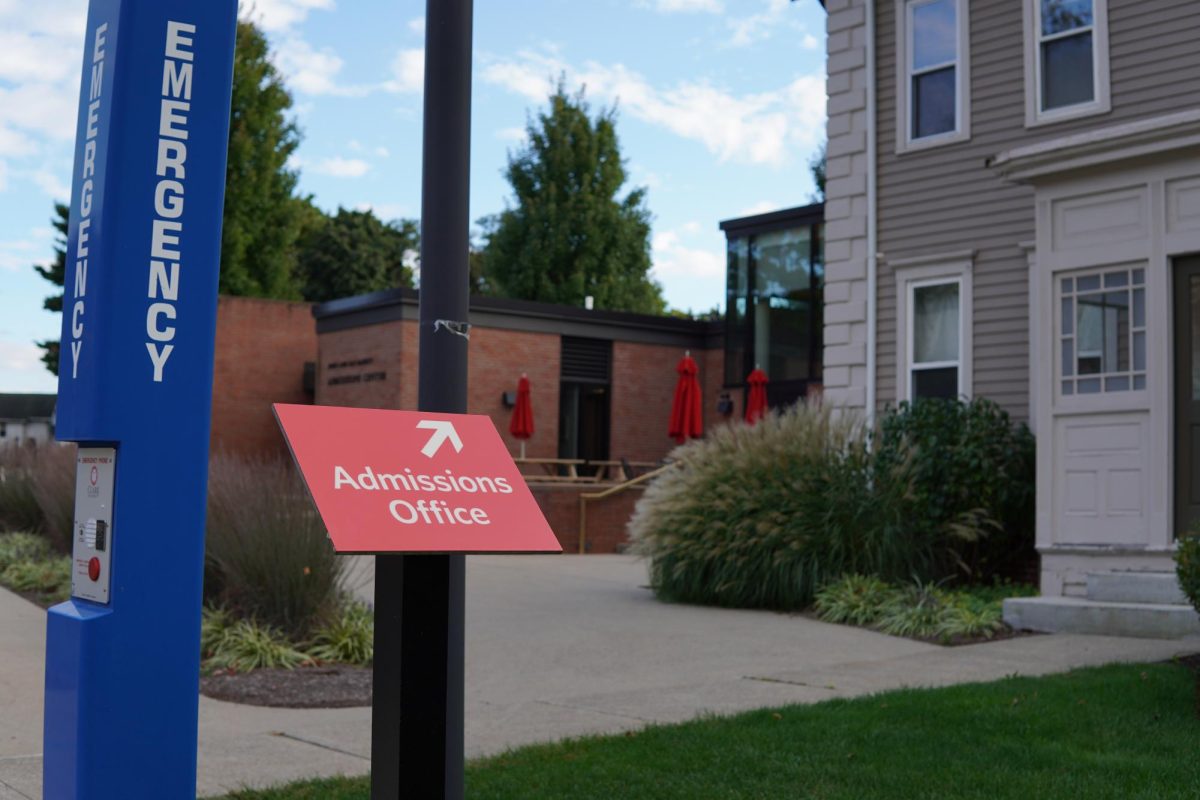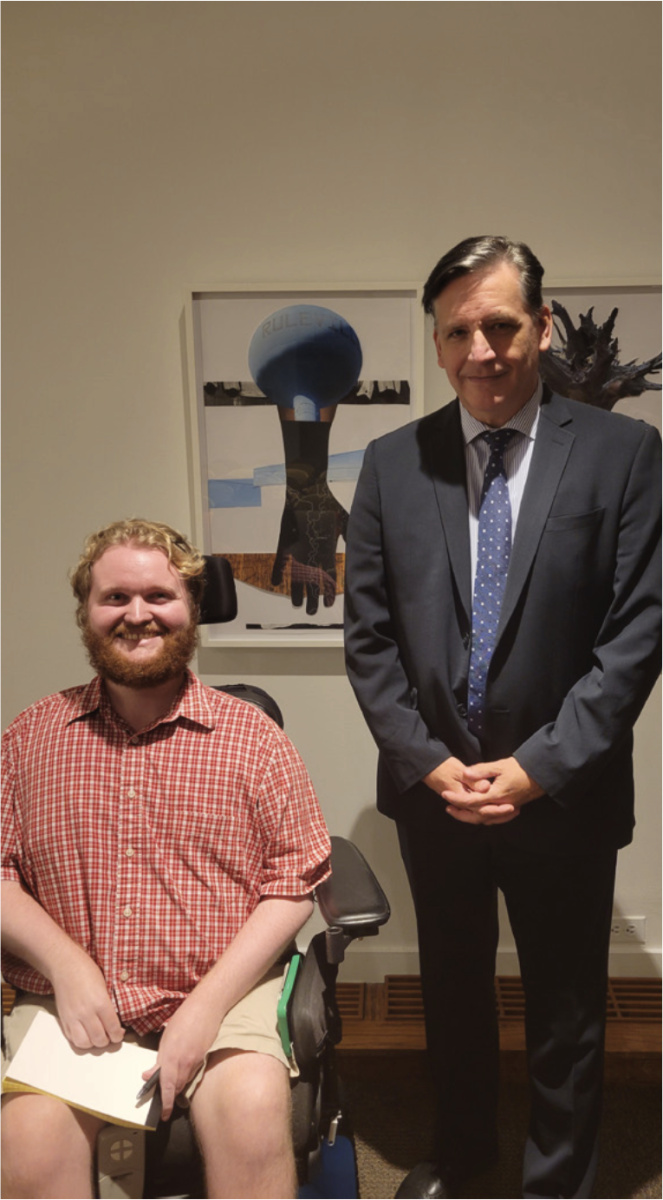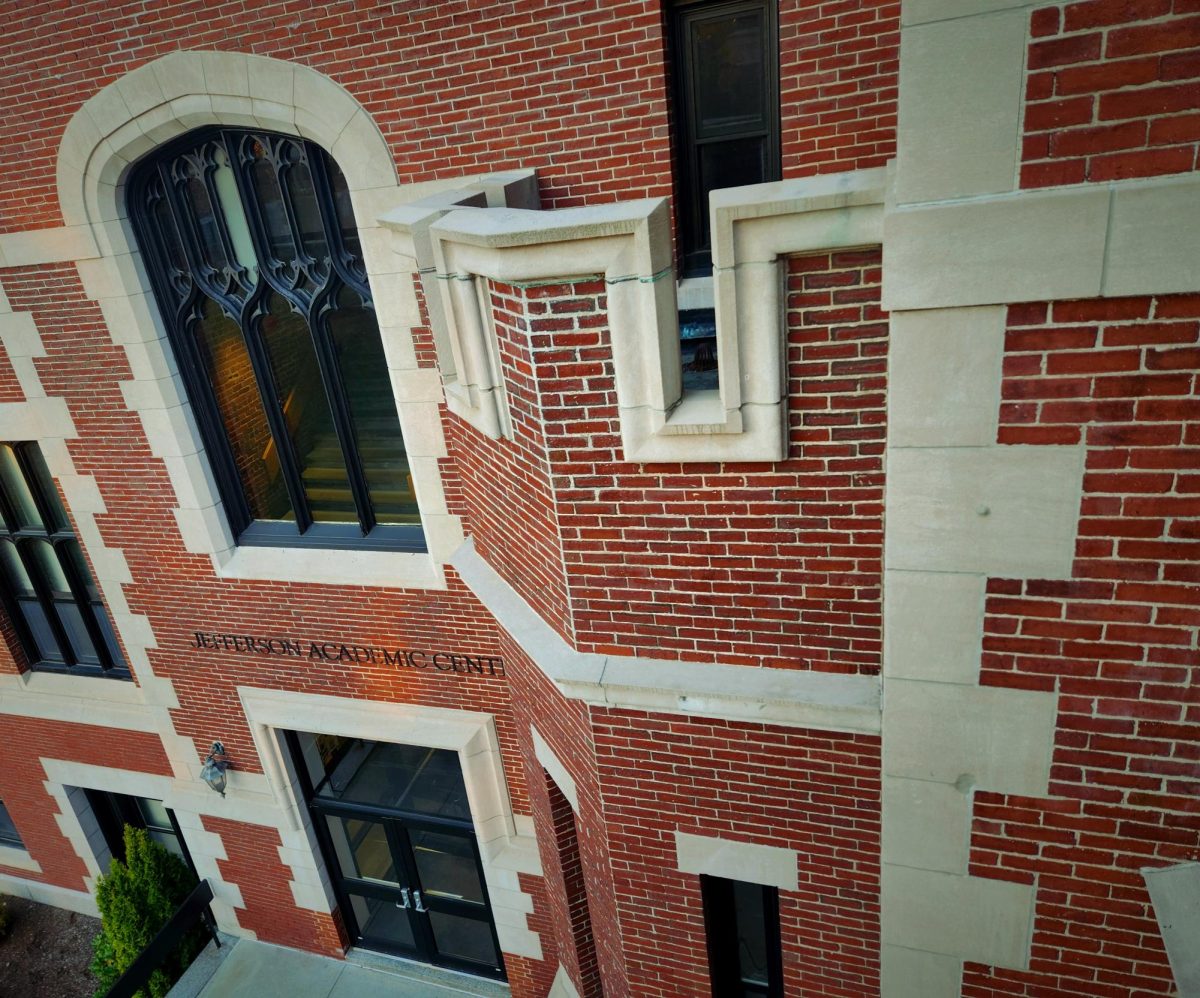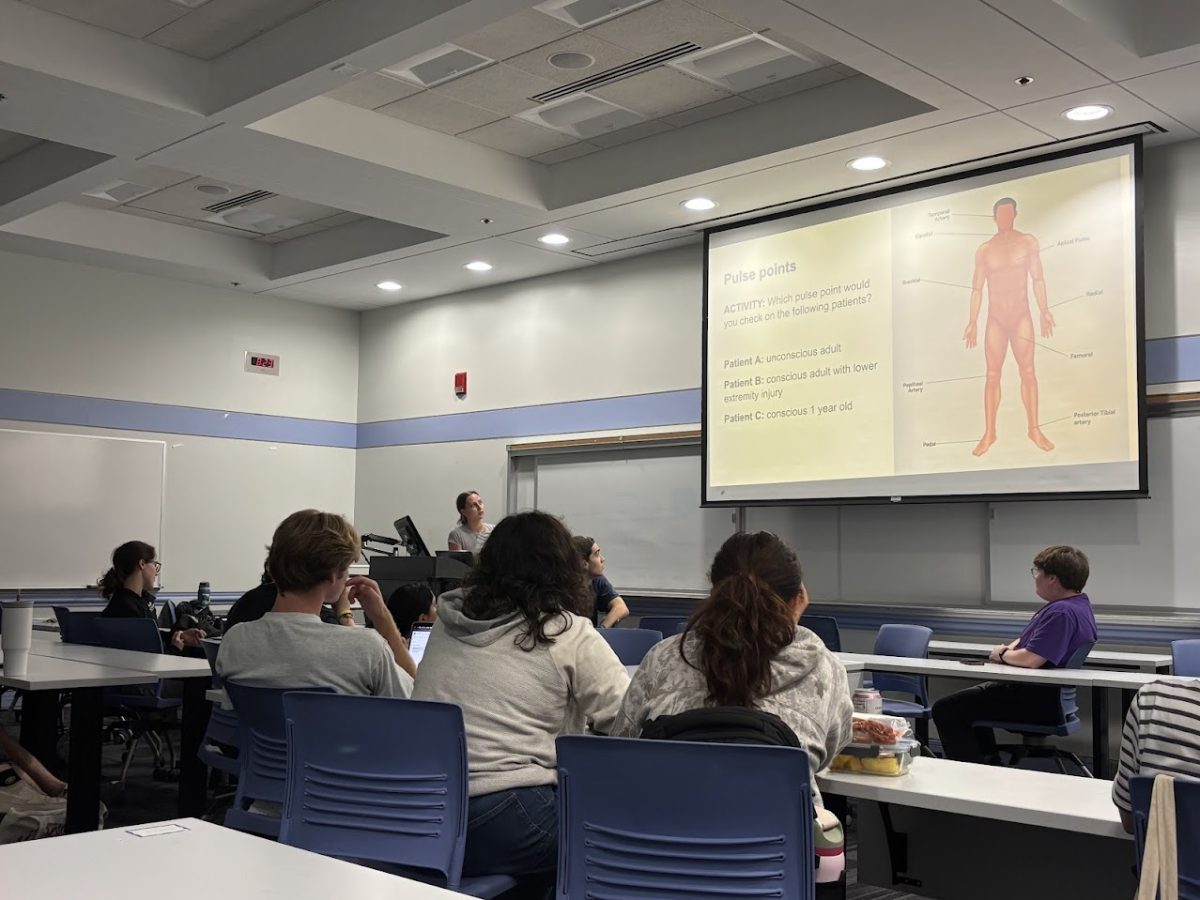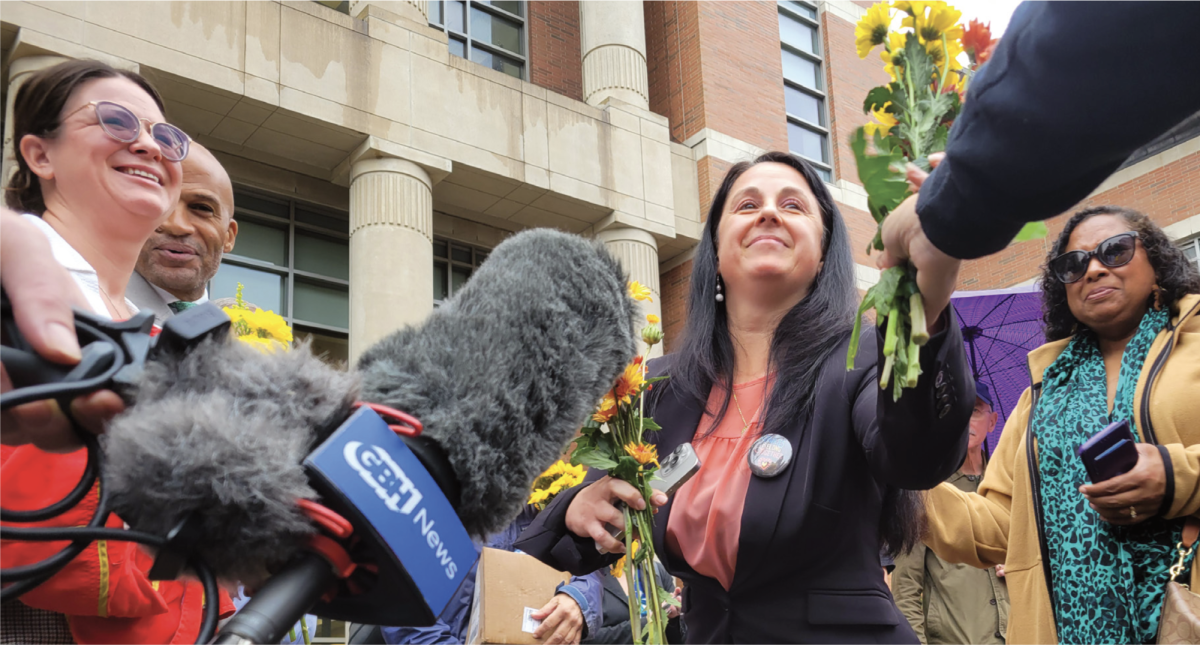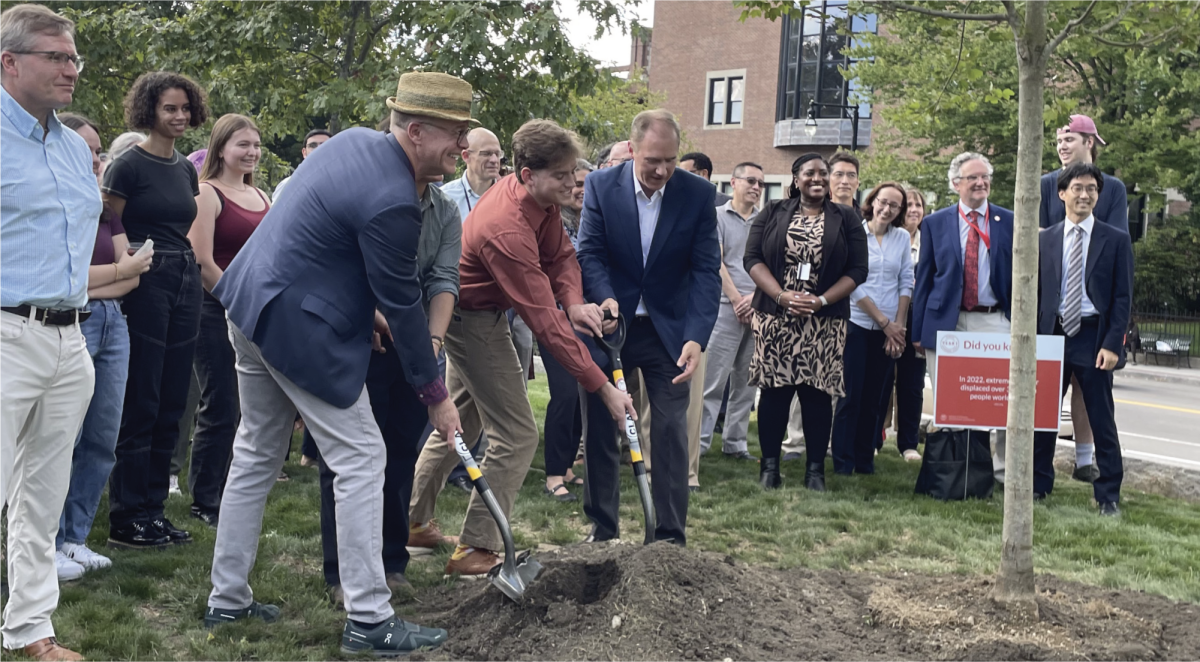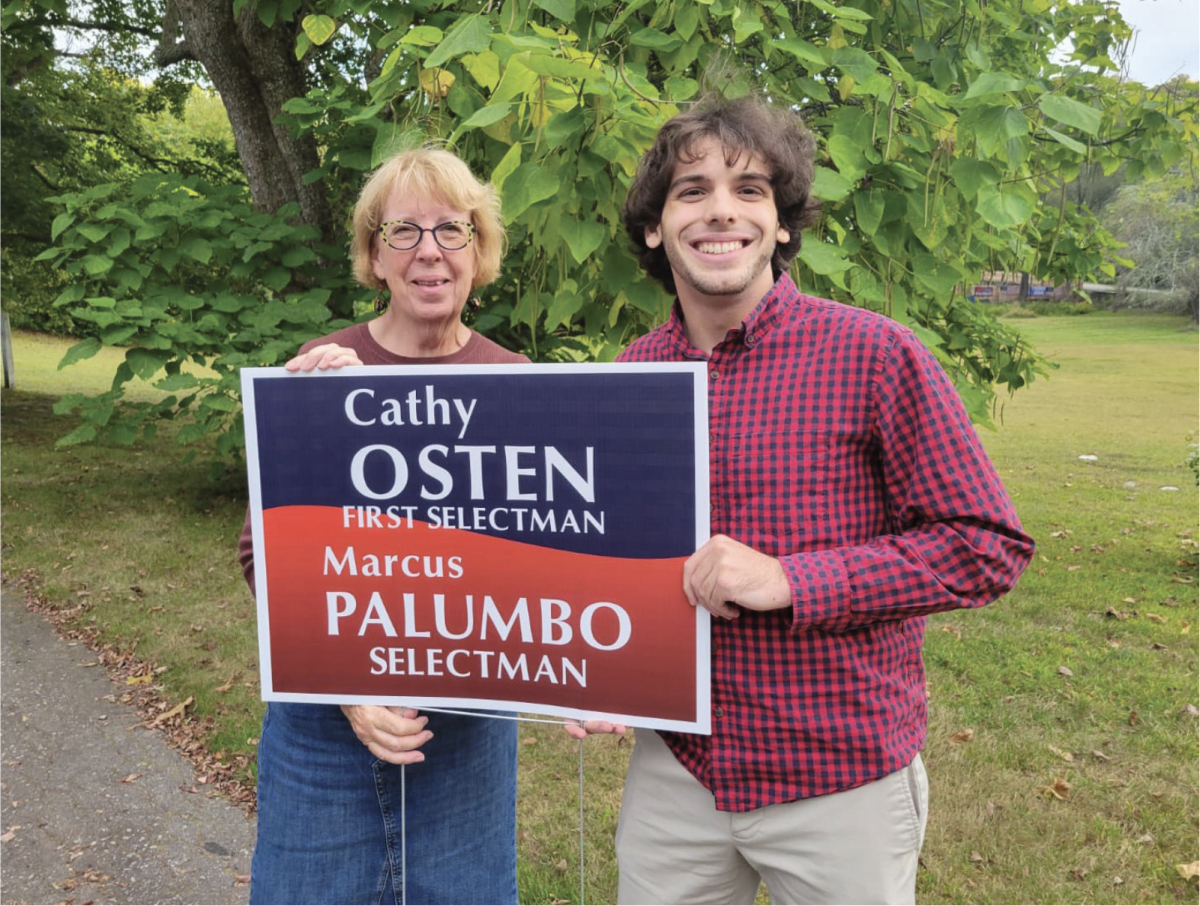A number of prestigious colleges and universities have released their admissions data for the first time since the Supreme Court case Students For Fair Admission v. Harvard, which overturned affirmative action nationwide. Unlike these schools, a majority of whom saw a decrease in admitted Black and African American students from the 2023-2024 academic year, Clark University has always done things differently.
Along with other institutions, Clark University submitted an amicus curiae brief–a legal document submitted by nonparties to provide their perspective on a case–showing their support for affirmative action in principle. However, Clark never used affirmative action and instead works to “diversify their applicant pool,” according to Diversity, Equity, and Inclusion Director Margo Foreman.
The latest available Common Data Set published by Clark University was posted for the 2021-2022 academic year–this year’s seniors.
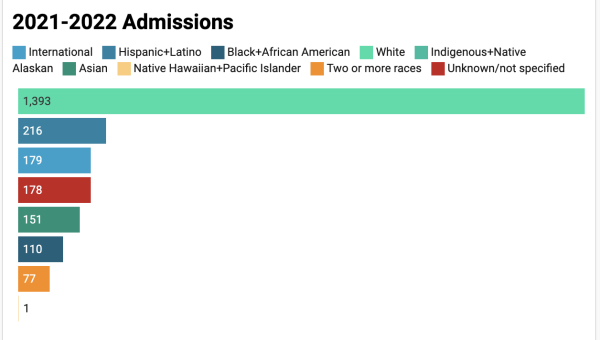
Emily Roper-Doten, Clark University’s Vice President for Undergraduate Admissions and Financial Assistance, explains that admission for domestic students of color has fluctuated in recent years, but did not undergo the same drop that other schools experienced: 29% in 2022, 37.5% in 2023, and 33% in 2024. Roper-Doten explained that these schools are highly selective and also report their enrolled student population rather than their admitted student population.
“Affirmative action affects the decision-making process,” Roper-Doten said. “It did not cover recruitment, where we continue to invest in our access and partnerships.”
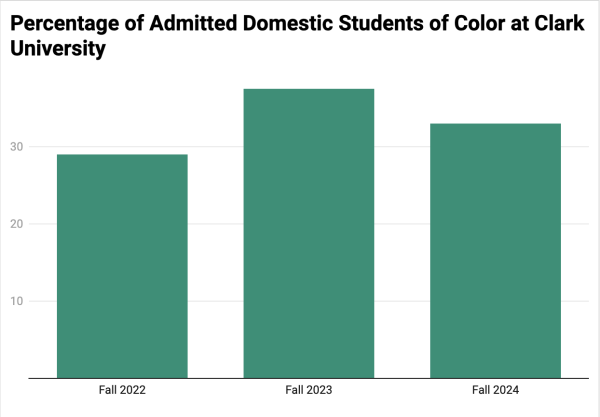
Clark University Admissions is involved in community-based organizations and nonprofits focused on expanding college access to first generation and low-income students. These include the Idea Schools in Texas, Opportunity Network in New York City, and Chicago Scholars. Admissions staff travel to these locations to build relationships and find students.
“If we’re looking at an area, we’re looking to see…do we have schools that are represented that have high populations of students of color, or have high numbers of free and reduced lunch,” Roper-Doten explained.
A new group of Student Ambassadors called the Access Team are also working on outreach efforts and making one-on-one connections with prospective students.
“Personalized outreach can really make a difference,” Roper-Doten said.
Roper-Doten emphasized that the challenge is not just diversifying the applicant pool. Developing programming and outreach opportunities during the post-admission period, between admission and enrollment, is crucial.
Clark University Admissions is providing travel stipends through the organizations they partner with to provide students living far away the opportunity to visit Clark. When asked about the funding for travel stipends, Roper-Doten said “it is certainly something I would like to see a larger budget for.”
Undergraduate Admissions are also providing virtual programming, academic panels, and support services to prospective Clarkies. They work with Peyton Wu, Director of Identity, Student Engagement, and Access (ISEA), to develop this programming.
This year, FAFSA rollouts are expected to once again be delayed from 10/1 to 12/1, or even later. The admissions team also aims to “build communication streams” about FAFSA so that students can “feel comfortable despite delays.” Clark will continue to require the CSS profile, a different financial aid form in addition to the FAFSA.
Because of these measures, Roper-Doten does not believe the FAFSA crash will have the same impact on enrollment as it did on last year’s admissions cycle.
Another concern is the admissions “cliff,” caused by decreased birth rates during the 2008 Recession. Roper-Doten says that in response, admissions is working to find prospective students worldwide to maintain numbers. This month, Roper-Doten flew to Tennessee on a recruitment trip. They installed a regional admissions representative in California last year and are launching a partnership with an international recruitment platform to “help build the pipeline for enrolling international students.” Roughly 1,200-1,500 international schools are involved in this program.
In the past, Clark University has partnered with the United World College Scholars Program according to the university’s website. Students who graduate from a UWC school are eligible for up to $15,000 in need-based grants, in addition to merit scholarship consideration for “up to the cost of tuition.”
According to Roper-Doten, “More students who are coming from a whole range of backgrounds are really seeing Clark as a place for them. But we’re not losing our backyard…we’re still recruiting in New England.”
For this next admissions cycle, Clark admissions is looking ahead and beyond: at recruiting more students from diverse backgrounds, increasing its international student population, and building relationships with recruiting programs nationwide.

